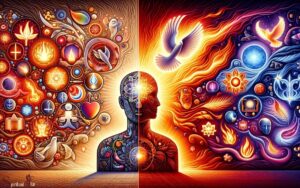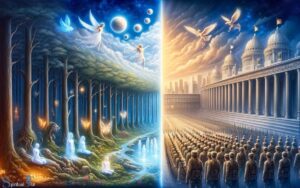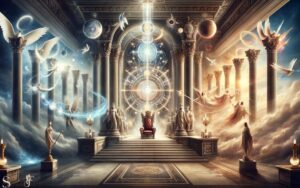Natural Man Vs Spiritual Man: Explain!
The concept of the natural man versus the spiritual man examines the intrinsic conflict between innate human instincts and the pursuit of higher spiritual enlightenment.
It is an idea that resonates across various philosophical and religious traditions, reflecting on how individuals can transcend their base desires to reach a state of spiritual awareness and fulfillment.
The ‘natural man’ typically refers to an individual governed by their instincts, desires, and worldly concerns. In contrast, the ‘spiritual man’ is one who seeks to overcome these natural inclinations to cultivate a deeper connection with the divine or a higher sense of purpose.
Natural Man:
- Driven by instinct and desire
- Focused on material gains and sensory experiences
- Often self-centered and reactive to the environment
Spiritual Man:
- Seeks inner peace and enlightenment
- Prioritizes moral values and virtues
- Embraces a sense of interconnectedness and altruism
For example, a person who prioritizes career success and material wealth over personal relationships and self-growth can be seen as leaning towards the ‘natural man’ side of the spectrum.
In contrast, someone who practices meditation and engages in community service to find meaning and connection might be considered closer to the ‘spiritual man’ side.
In today’s fast-paced world, the quest to nurture one’s spiritual self is often overshadowed by the lure of material success. However, achieving a balance between our natural inclinations and spiritual aspirations is essential for holistic well-being.
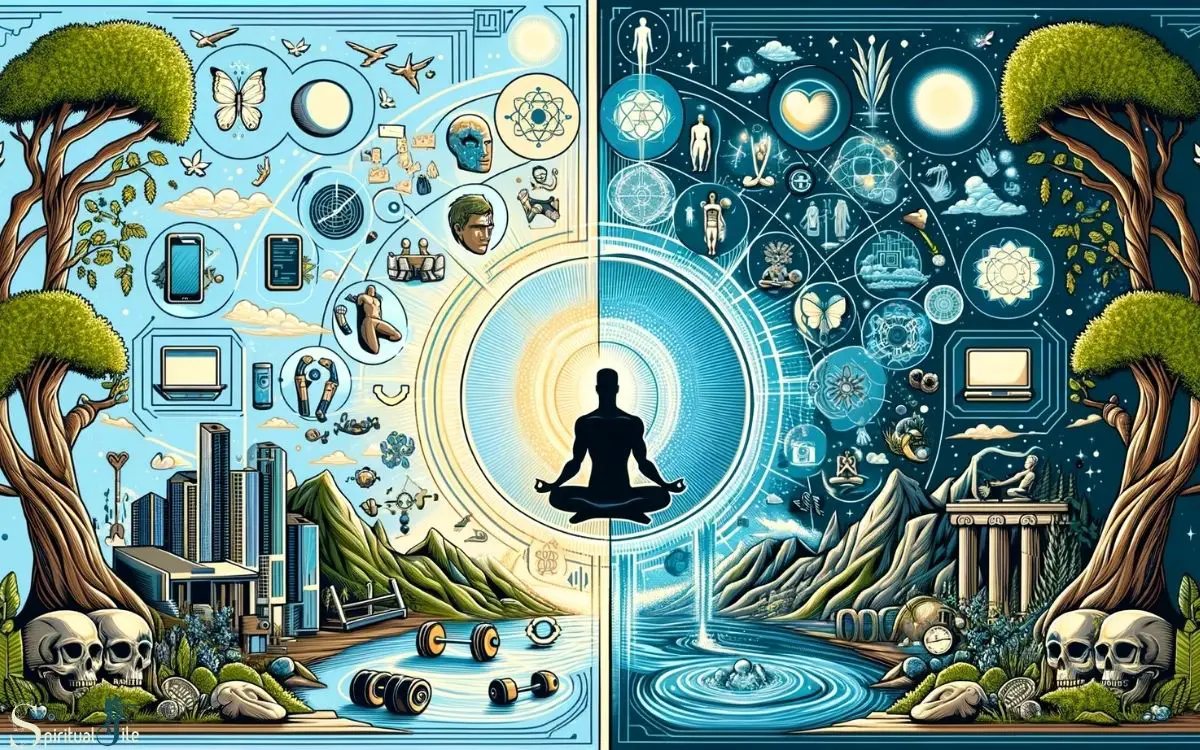
Key Takeaway
Origins of Natural and Spiritual Man
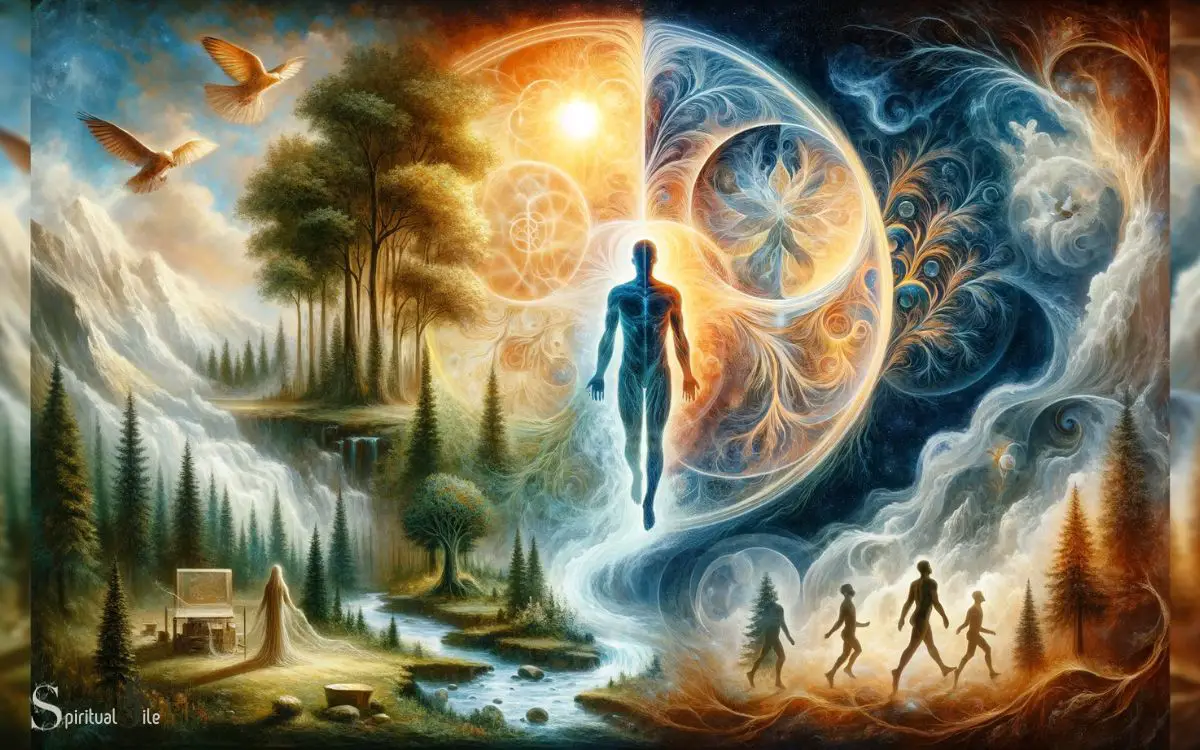
The origins of the natural and spiritual man can be traced back to the philosophical and religious traditions of various cultures throughout history.
In different societies, the concept of the natural man, driven by basic human instincts and desires, is often contrasted with the spiritual man, who is guided by higher principles and moral values.
Philosophers like Rousseau and religious traditions such as Hinduism and Buddhism have delved into the dichotomy between these two aspects of human nature.
They have explored how the natural and spiritual elements are shaped by cultural, environmental, and personal influences, contributing to the complex identity of individuals.
Understanding the origins of these dual aspects of humanity sheds light on the subsequent characteristics and behaviors associated with the natural man.
Transitioning into the subsequent section about ‘characteristics of the natural man’, let’s explore how these origins manifest in human behavior and values.
Characteristics of the Natural Man
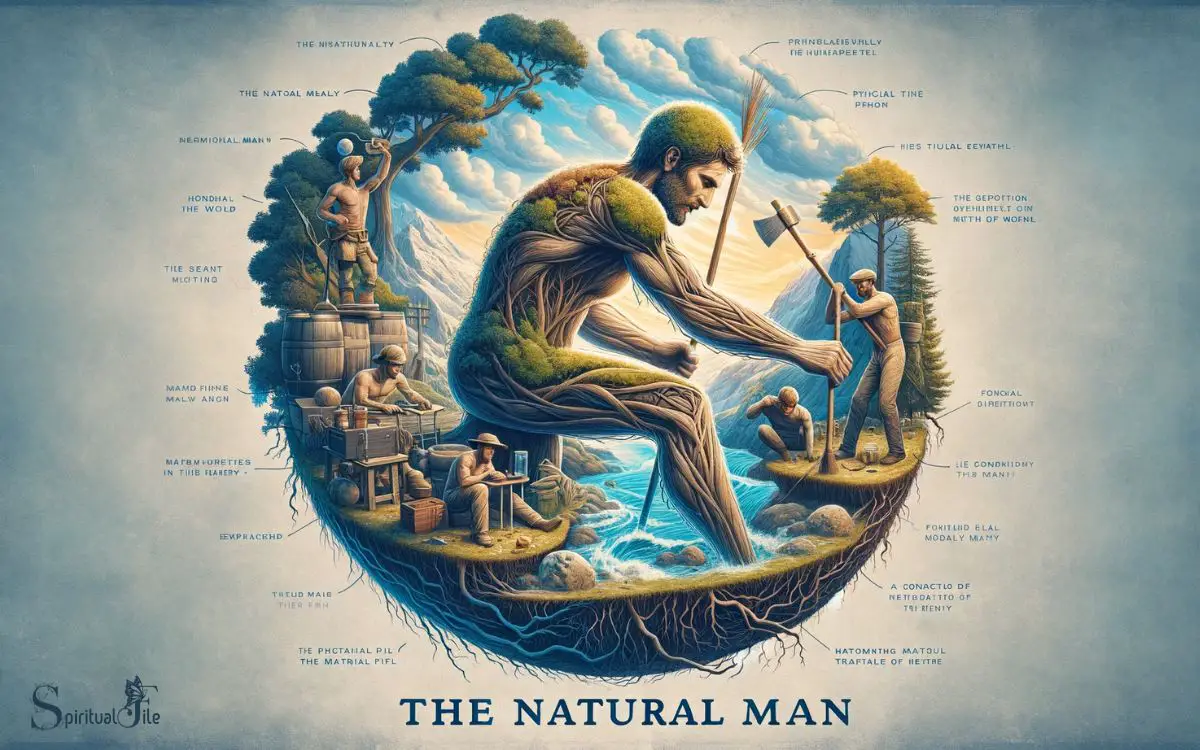
Shaped by innate instincts and primal desires, the natural man embodies a primal and instinct-driven approach to life.
This is evident in several key characteristics:
| Characteristics of the Natural Man | |
|---|---|
| Self-centeredness | Natural man is primarily focused on fulfilling personal desires and needs without considering the impact on others. |
| Materialistic | Possessions and wealth are of utmost importance, often defining the natural man’s sense of worth and success. |
| Ego-driven | The natural man is motivated by personal pride and the need for validation and recognition. |
The natural man operates within the confines of the physical world, often driven by immediate gratification and external validation.
Understanding these characteristics is crucial in recognizing the stark contrast between the natural and spiritual man.
Traits of the Spiritual Man
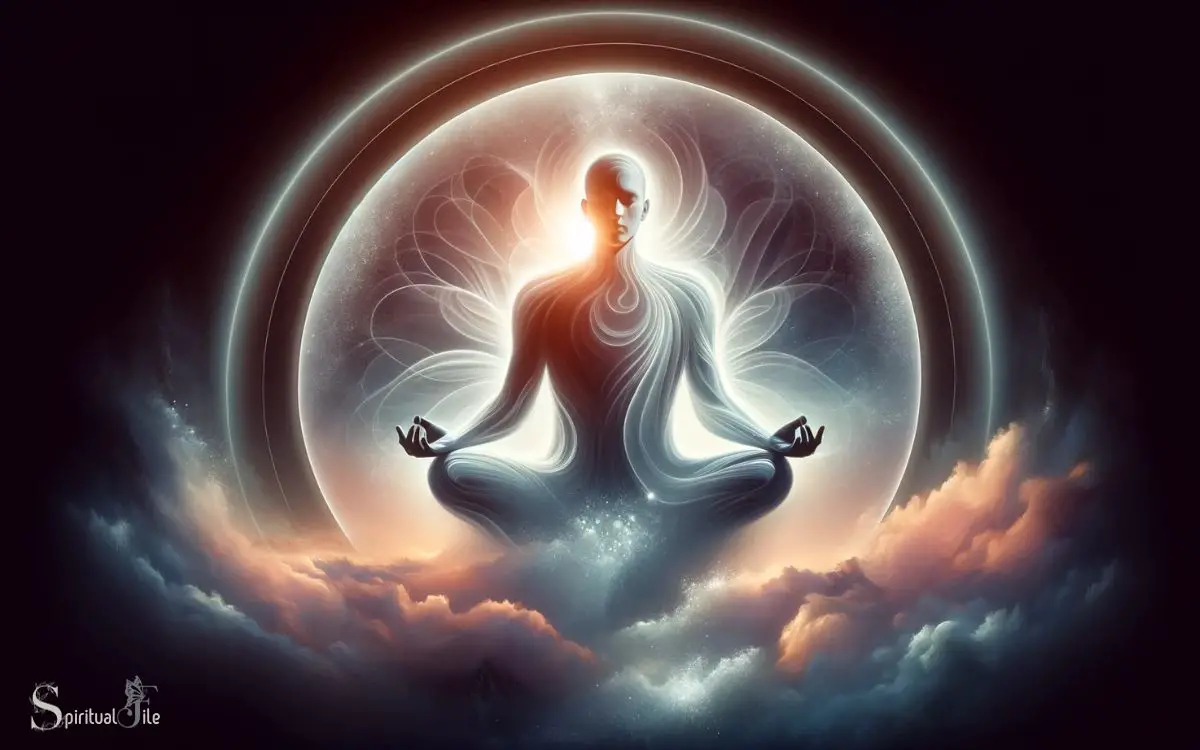
Embodied by a profound sense of purpose and inner harmony, the spiritual man exemplifies a deep connection to higher principles and transcendent values.
This individual is guided by a strong moral compass, often prioritizing compassion, empathy, and selflessness in their interactions with others.
The spiritual man is characterized by a profound sense of gratitude and a commitment to personal growth and self-awareness.
Their actions are often guided by a sense of inner peace and a desire to contribute positively to the world around them.
Additionally, the spiritual man seeks to cultivate a deep understanding of the interconnectedness of all living beings and the universe, often leading to a sense of reverence for all forms of life.
This individual strives for balance, wisdom, and a harmonious relationship with the world around them.
Conflict Between the Two States
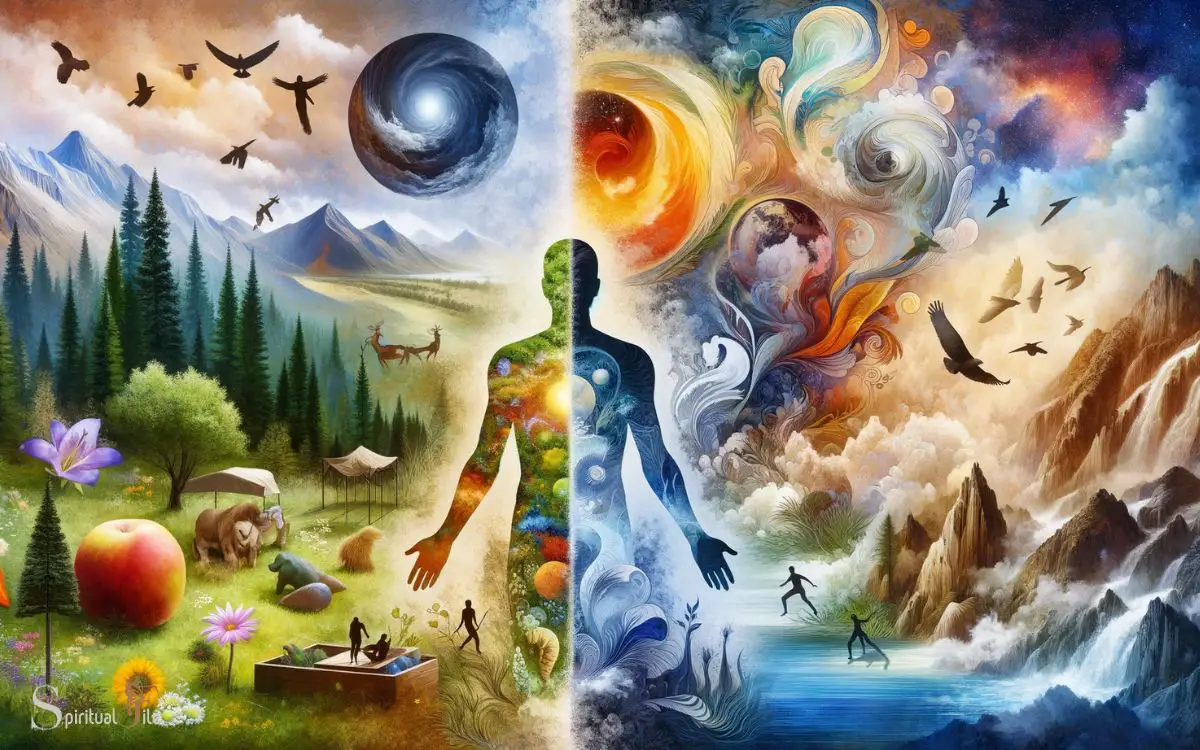
Balancing the competing influences of instinctual drives and higher spiritual principles poses a significant challenge for individuals navigating the conflict between the natural and spiritual states.
The natural man, driven by primal instincts for survival, often seeks immediate gratification and operates from a place of self-interest.
In contrast, the spiritual man aspires to transcend the limitations of the ego, embracing virtues such as compassion, selflessness, and integrity.
This conflict is evident in everyday choices, where one must decide between self-serving actions and those aligned with higher principles.
The struggle to resist impulses that conflict with spiritual values can create inner turmoil and moral dilemmas.
However, acknowledging this conflict is the first step towards achieving harmony between these two states, leading to personal growth, self-awareness, and a deeper connection with the spiritual realm.
Nurturing the Spiritual Self

Developing a deep understanding of spiritual principles and cultivating a disciplined practice is essential for nurturing the spiritual self.
This involves embracing values such as compassion, gratitude, and mindfulness, and incorporating them into daily life.
Here is a table highlighting some key practices for nurturing the spiritual self:
| Spiritual Practice | Description |
|---|---|
| Meditation | Cultivating inner peace and self-awareness through focused mental exercises |
| Prayer | Connecting with a higher power and seeking guidance and strength |
| Service | Helping others and contributing to the well-being of the community |
| Reflection | Contemplating on experiences and seeking deeper meaning and understanding |
| Mindful Living | Being present in every moment and approaching life with intention |
What is the Difference Between the Spiritual and Natural Aspects of Man?
The difference between spiritual vs natural organisms lies in the essence of their existence. While natural organisms are driven by physical needs and instincts, spiritual organisms are motivated by a deeper sense of purpose and connection to a higher power. These two aspects of man coexist, shaping our thoughts, actions, and beliefs.
Frequently Asked Questions
How Can One Develop a Balance Between Their Natural and Spiritual Selves?
Developing a balance between one’s natural and spiritual selves involves self-reflection, mindfulness, and a commitment to personal growth.
By cultivating awareness of both inner and outer experiences, individuals can integrate these aspects harmoniously and lead a more fulfilling life.
What Role Does Faith Play in the Transformation From Natural Man to Spiritual Man?
Faith plays a crucial role in the transformation from natural man to spiritual man by providing a foundation for belief, guiding moral and ethical decisions, and fostering a deeper connection to spiritual practices and principles.
Are There Specific Practices or Rituals That Can Aid in Nurturing the Spiritual Self?
Engaging in regular spiritual practices and rituals, such as meditation, prayer, and mindfulness, can aid in nurturing the spiritual self.
These practices provide opportunities for reflection, connection, and growth, fostering a deeper spiritual understanding and fulfillment.
Can a Person Transition From Being a Natural Man to a Spiritual Man, or Is It a Fixed State?
Transitioning from a natural state to a spiritual one is possible. It involves personal growth, self-awareness, and a shift in mindset and behavior.
This transformation requires introspection, mindfulness, and a commitment to spiritual practices and principles.
How Does Societal Influence Impact the Development of the Spiritual Self?
Societal influence impacts the development of the spiritual self through cultural norms, social expectations, and community beliefs.
These influences shape individuals’ values, moral compass, and sense of purpose, creating a complex interplay between external forces and internal growth.
Conclusion
In conclusion, the contrast between the natural man and the spiritual man highlights the ongoing conflict within individuals.
The natural man is driven by earthly desires and materialistic pursuits, while the spiritual man seeks higher purpose and enlightenment.
The battle between these two states of being is a constant struggle, with the nurturing of the spiritual self serving as the key to transcending the limitations of the natural man.

